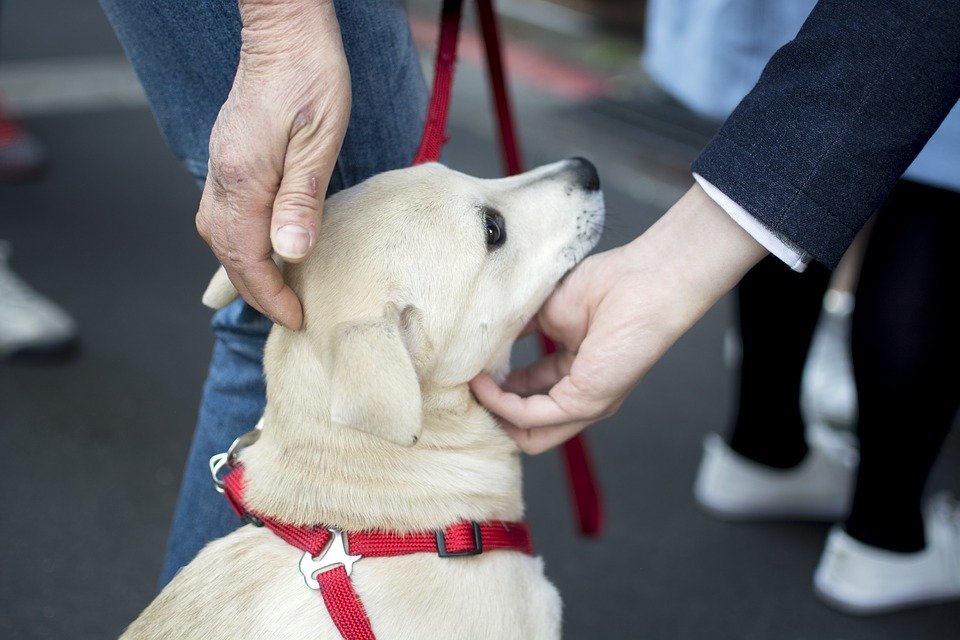Emotional support animals need to be more accessible in college

The necessity of emotional support animals has often been questioned but, statistics on mental health in college students provide some background on their crucial role. Nearly 44% of college students have symptoms of depression or anxiety and 30% of students have reported feelings of depression in the past year, according to Mayo Clinic.
As stated by a study conducted by NCBI, “Most mental health disorders have their peak onset during young adulthood,” which is right around one’s college years. Surveys conducted by the American College Health Association showed that more than half of the respondents, who were college students, suffered from anxiety, and almost half experienced nearly debilitating depression. It is no consolation that universities do not have a proportionate amount of counselors on staff to assist struggling students.
The mental health of college students is an ongoing crisis that many schools struggle with. Luckily, animals “can help people manage their long-term mental health conditions” and provide people with an element of emotional security. When humans spend time with animals, their levels of cortisol, the “primary stress hormone,” decrease, as do feelings of loneliness. Despite research that shows the depth of mental health struggles in college students and the potential alleviation of these symptoms offered by animals, getting an emotional support animal approved in college is difficult. Emotional support animals are not legally viewed as service animals under Title I and Title II of the Americans with Disabilities Act. However, a mental illness has the potential to be “considered a disability by the Social Security Administration,” and yet, the process to obtain listing an emotional support animal as a service animal is not as simple as just getting a doctor’s note regarding your mental status.
Psychology Today describes emotional support animals as an important tool in a student’s mental health treatment, but colleges are increasingly concerned with fraudulent requests for such animals, making the process more difficult and less common.
In California, a connection with a mental health provider for 30 days is required before having the ability to receive the documentation that could lead to the approval of an emotional support animal. This can create time and financial constraints for students. Not everyone has the ability to wait a month before receiving necessary support, and mental health providers and services are notoriously expensive, thus less accessible.
USC characterizes emotional support animals as assistance animals and states that since they are not service animals, they are “generally considered a housing-related accommodation.” The USC Office of Student Accessibility Services encourages students who want to bring an assistance animal to campus “to initiate this process well in advance of the housing request and placement process to allow for the complete file review process prior to housing arrangements being finalized,” which implies that it is a long-winded road to receive approval.
USC does not have a separate department that deals with requests for assistance animals within OSAS. The creation of such a department that handles these cases in a one-on-one, discussion-based framework would make students feel more comfortable presenting their requests and will allow the approval process to go more smoothly.
This department would lessen the stigma associated with emotional support animals. The process can be overwhelming, and having resources where one could be walked through the process would alleviate unnecessary stress. It could direct students to mental health professionals who do not financially burden them, as well as provide financial packages one could use for animal care.
Emotional support animals are sometimes viewed as glorified pets that get unfair special treatment by institutions such as universities. ESADoctors.com, a blog dedicated to education on the topic, states that, “An emotional support animal is a doctor-ordered treatment, just like medication and talk therapy.” A 2018 research conducted by the National Center for Biotechnology Information showcases that dogs, for example, had the ability to decrease feelings such as depression and loneliness in veterans suffering from PTSD. In fact, the dogs even increased feelings of calmness. As stated in the research study, “Pets were able to provide unique emotional support as a result of their ability to respond to their owners in an intuitive way, especially in times of crisis and periods of active symptoms.”
Universities and colleges across the United States have an implicit obligation to their students to ensure their emotional needs are being met. In a time of communal struggle, this has never been more true. Emotional support animals are a valid tool for increasing the mental health of students in need, and there needs to be a concerted effort to make these animals more accessible as well as less stigmatized.

